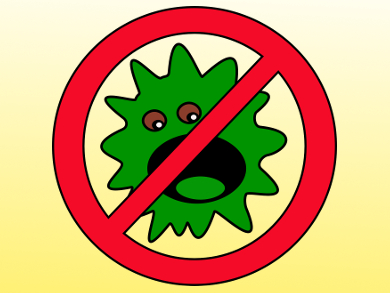Ironically, bacteria themselves are one of the most prolific producers of antibiotics. They have evolved potent chemicals that can eliminate the competing bacteria in their environment with deadly precision. These types of secondary metabolites are often more selective toward a particular bacterial strain than those developed through medicinal chemistry. In particular, Pseudomonas putida (Pp) produces an antibiotic, promysalin, that kills the closely related strain Pseudomonas aeruginosa (Pa).
William Wuest, Emory University, Atlanta, GA, USA, and colleagues have found that promysalin targets succinate dehydrogenase (Sdh), a key enzyme in basic metabolism for all living organisms. This was a great surprise because Sdh is not an enzyme specific to Pa or even to bacteria. Through a combination of molecular modeling and bacterial growth assays, the team was able to show that promysalin is a general inhibitor of bacterial Sdh. However, because of a difference in how the different strains react to environmental stress, Pa is susceptible to Sdh inhibition, while Pp can create energy through an alternative pathway.
This unexpected result opens up a new way of developing strain-specific antibiotics, which could be key to containing future bacterial outbreaks without increasing antibiotic resistance. Further development of promysalin as a Pa-specific antibiotic could address one of the most urgent bacterial threats facing immune-compromised patients.
- Promysalin Elicits Species-Selective Inhibition of Pseudomonas aeruginosa by Targeting Succinate Dehydrogenase,
Colleen E. Keohane, Andrew D. Steele, Christian Fetzer, Jittasak Khowsathit, Daria Van Tyne, Lucile Moynié, Michael S. Gilmore, John Karanicolas, Stephan A. Sieber, William M. Wuest,
J. Am. Chem. Soc. 2018, 140, 1774–1782.
https://doi.org/10.1021/jacs.7b11212



